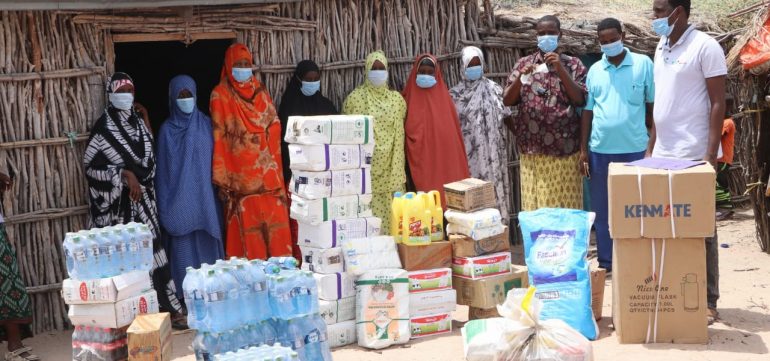
Millions in Africa face acute food insecurity daily, most vulnerable people and/or communities have limited access to resources on how to mitigate against livelihood stresses as they arise.
Extremely poor people in developing countries face many risks, a number of which are associated with climate change. An increase in the incidence and severity of climate-related disasters are negatively impacting on crop yields and the availability of food for subsistence farmers and many pastoralist families are losing their livestock which is often their only source of income and their livelihood. Secure livelihoods offer the extreme poor a pathway to forge their way out of poverty.

Our Health and Nutrition Focus
Our goal of building resilient communities with a sustainable development agenda, focusing primarily on women, youth, and children, can only be achieved by addressing the root causes of poverty — particularly poor public health and nutritional deficiencies.
We aim to transform food systems to ensure healthy, sustainable diets for those we serve. By applying a nutrition lens to our projects, we support initiatives that address the root causes of malnutrition within broader systems. This involves sectoral integration across agriculture, WASH, health, livelihoods, and climate resilience to holistically combat malnutrition.
At the core of APID’s strategy is the Community Adaptive Nutrition (CAN) approach, which leverages the strengths of local communities. CAN integrates agriculture, nutrition, WASH, community empowerment, and gender activities to create a catalytic effect. Working with other actors to reach rural and peripheral areas severely impacted by malnutrition, CAN tackles the root causes of hunger. Our work on maternal and newborn health focuses not only on treating malnutrition and disease but also on preventing them. We believe that investing in healthcare, particularly maternal and child health, is vital to preventing illness and disability.
As an indigenous organization, we seek mutual partnerships with relevant actors to help prevent and treat malnutrition. Our medical and public health teams build the capacity of Community Health Volunteers (CHVs) to screen children for common illnesses like malaria, diarrhea, and respiratory infections, and equip them to provide basic treatment or referrals. We support multi-agency county health surveys to gather data and improve health service delivery. Additionally, through our internal funds, we invest in critical health areas, such as strengthening health systems, to create catalytic effects in the communities we serve.
Our Intervention Strategies
In the face of rising food insecurity, APID is working in some of the most vulnerable communities to ensure that no one dies from hunger or suffers chronic malnutrition.
Improving nutrition and food security is APID’s primary goal as part of our mandate to have resilient community with sustainable development agenda.
APID works hand in hand with the communities we serve, co-creating sustainable responses to improve their livelihood opportunities, resilience, human capital development and access to finance and markets.
We use an integrated approach to holistically prepare families to be resilient to unforeseen shocks. As an indigenous organization we meet those challenged by poverty where they are, and deliver the tools they need to address root causes, adjust to the often-shifting social and economic landscape around them, and become income-secure.
Our livelihood interventions are tailored to address communities’ needs and harness their unique resources, boosting agricultural production, jump-starting local markets, and supporting small businesses. These efforts enhance sustainable sources of food and income while strengthening local food systems.
APID supports adaptation strategies for affected communities, such as promoting practices inspired by agro-ecology, climate adaptive agriculture that promotes the diversification of crop varieties, increasing access to improved farming skills and technologies, and strengthening links with the private sector to facilitate access to agricultural inputs from seeds, to new technologies such as solar water irrigation systems.
We work with farmers to revitalize the earth so crops can thrive, developing irrigation, and animals watering points, so as to maximize agricultural production and breeding. APID works to accelerate innovation in agronomy and livestock management to increase and diversify food supply and to manage zoonotic diseases, food safety, and anti-microbial resistance.
We offer business and technical skills and access to a wide range of essential business development services to entrepreneurial individuals, producer groups and cooperatives and link them to market and financial opportunities.